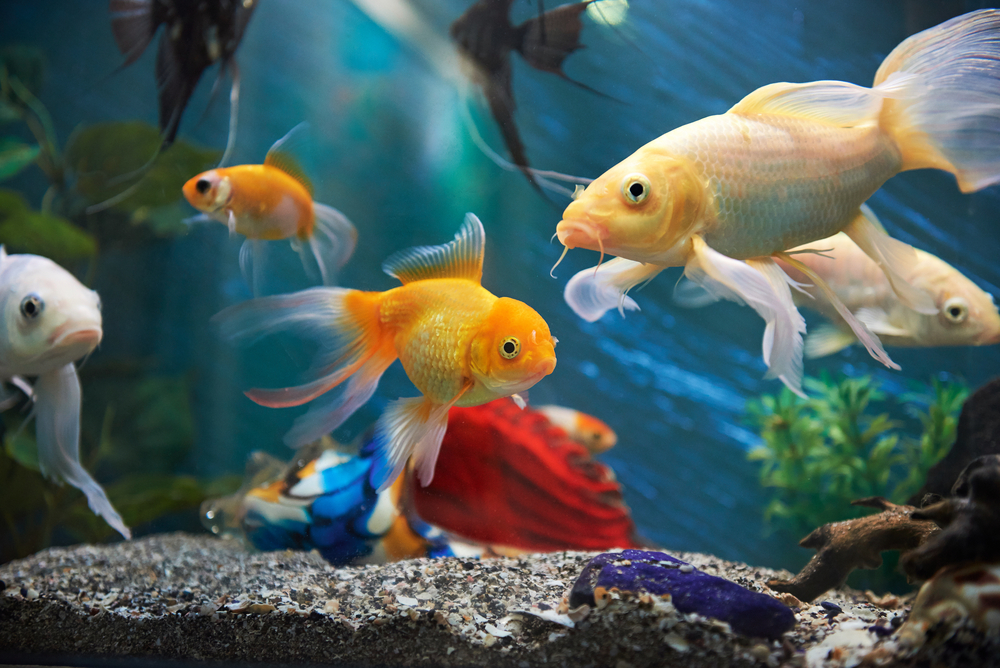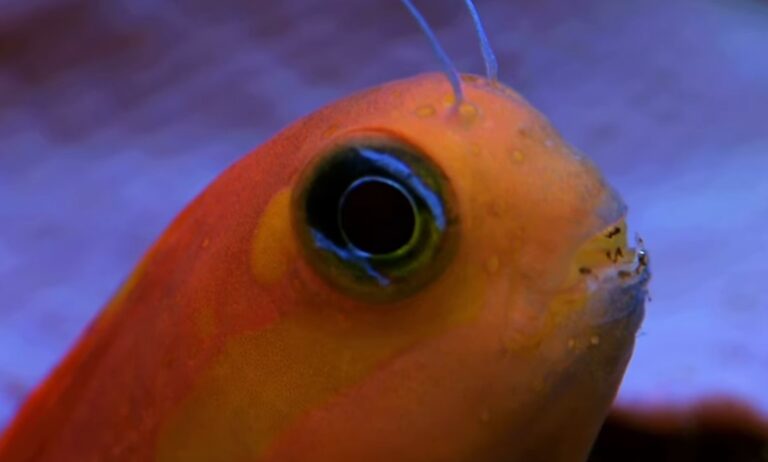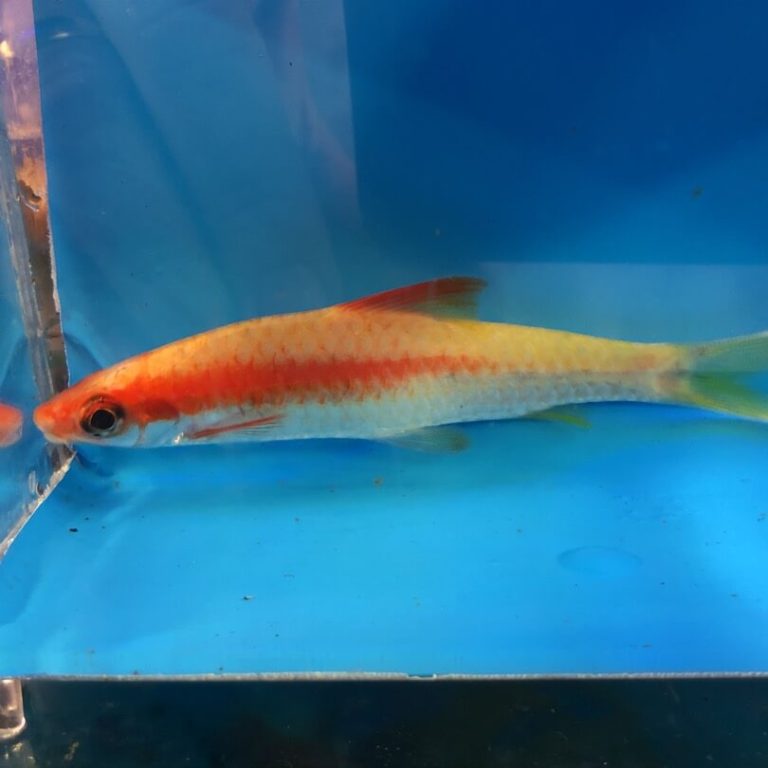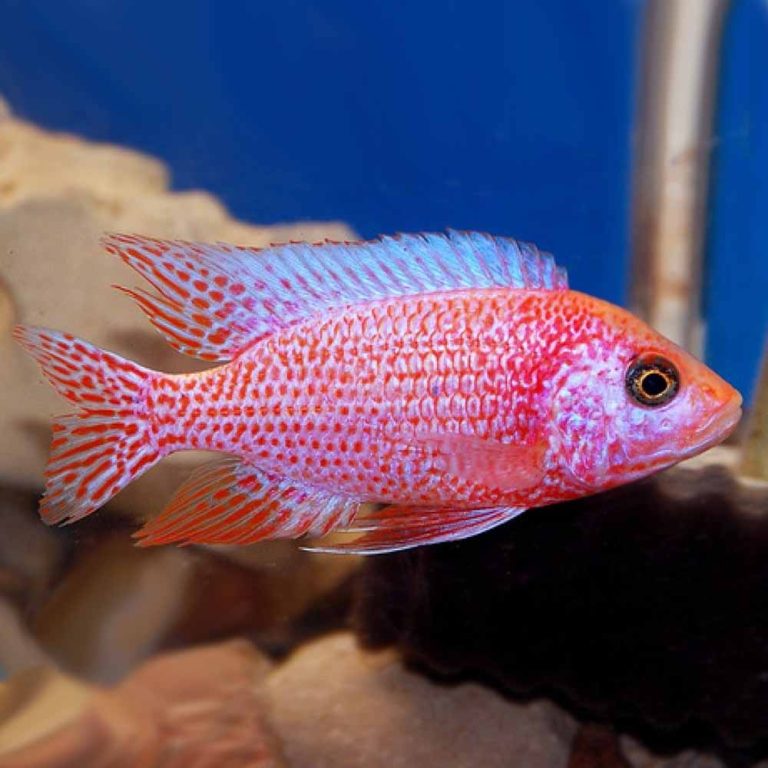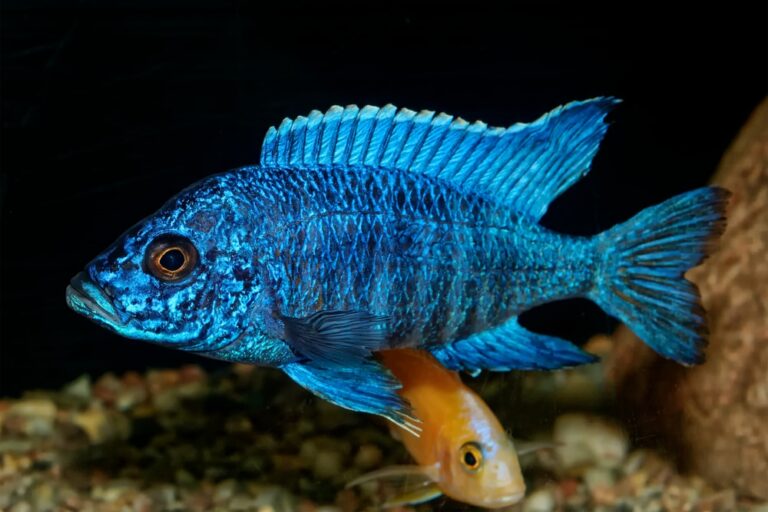Saltwater Fish Care: Tips for Keeping Them Healthy
To take care of saltwater fish, maintain proper water conditions and feed appropriately. Keeping saltwater fish healthy requires certain conditions and care.
Proper maintenance of their tank’s water, such as ensuring adequate filtration and frequent water changes, helps keep fish healthy. A well-balanced diet is essential for their health. Additionally, monitoring their behavior and appearance for signs of illness, as well as providing a suitable environment for them to thrive, will help ensure their well-being.
With proper care, saltwater fish can be a beautiful addition to any home aquarium. In this article, we will discuss the must-know tips for taking care of saltwater fish, including water quality, nutrition, and health indicators.

Credit: www.eregulations.com
Understanding The Basics Of Saltwater Fish Care
Saltwater fish are fascinating creatures that require some extra care and attention to thrive in their aquarium. If you want to keep these beautiful species in your home, it’s essential to understand the basics of saltwater fish care. In this section, we will walk you through important factors to consider, including monitoring and maintaining water quality.
Factors To Consider When Keeping Saltwater Fish
Saltwater fish require a stable environment to stay healthy and happy. As a responsible aquarium owner, you need to consider the following factors:
- Tank size: The size of the tank depends on the number and species of fish you intend to keep. Ensure each fish has plenty of space to swim and thrive.
- Filtration: Choose an efficient filtration system that can handle the size of your tank and the bioload of your fish. A good filter will help remove toxins from the water and keep it clean.
- Lighting: Lighting is essential for the growth of algae and other organisms that fish feed on. Choose the right type and intensity of light suitable for your fish and coral.
- Temperature and salinity: Saltwater fish are sensitive to temperature fluctuations and salinity levels. Ensure both parameters are maintained at stable levels using reliable equipment.
- Compatibility: Some saltwater fish can be aggressive towards each other or other tankmates. Research and ensure the fish you select can live together peacefully.
The Importance Of Monitoring And Maintaining Water Quality
Water quality is crucial for the health and survival of saltwater fish. Proper water management involves regular monitoring, testing, and maintenance. Here are some tips to maintain excellent water quality:
- Regular water changes: Aim to change 10-20% of your tank water every week to remove dissolved pollutants and replenish essential minerals and trace elements.
- Testing water parameters: Test the levels of nitrate, nitrite, ammonia, ph, and salinity at least once a week using reliable test kits. Keep a record of the test results to detect any changes early.
- Maintaining proper ph and alkalinity: Ensure that the ph and alkalinity levels are within the proper range to prevent fluctuations that can cause stress to the fish and other inhabitants.
- Cleaning and maintenance: Regularly clean the aquarium equipment, including filters, pumps, and protein skimmers, to ensure they work correctly and do not accumulate debris and waste which can affect water quality.
Understanding the basics of saltwater fish care is essential for creating a healthy and thriving aquarium. Consider the factors mentioned above and monitor water quality to ensure a stable environment for your beautiful saltwater fish.
Creating A Nutritious & Balanced Diet For Saltwater Fish
Saltwater fish, like any other animal, need a nutritious and balanced diet to thrive. In the wild, saltwater fish eat a variety of foods, including plants and animals. As an aquarium owner, it is your responsibility to provide your fish with a diverse and healthy diet.
Here’s everything you need to know to keep your saltwater fish happy and healthy.
The Significance Of Feeding Saltwater Fish Regularly
Feeding your saltwater fish regularly is crucial for their health and wellbeing. Regular feeding helps to slow down their metabolism, allowing them to use energy efficiently. It also helps to maintain a stable water environment as uneaten food can pollute the water.
Feeding your fish also promotes good growth, strengthens their immune system, and reduces stress.
Understanding The Nutritional Needs Of Saltwater Fish
It’s vital to provide your saltwater fish with a diverse and balanced diet that meets their nutritional needs. Saltwater fish require four essential nutrients in their diet:
- Protein: Fish require a higher percentage of protein in their diet than any other animal because they are cold-blooded. Protein helps to build muscle, repair body tissues, and promote essential functions in the body.
- Carbohydrates: While carbohydrates aren’t absolutely necessary in a fish’s diet, they do provide energy to help with growth and other functions.
- Fats: Fats are essential for the growth and maintenance of nerves and cell tissues in the body.
- Vitamins and minerals: Saltwater fish require a range of vitamins and minerals such as vitamin c, vitamin d, calcium, and more. These nutrients help with immune function, blood clotting, and maintaining healthy bones and teeth.
What To Feed Your Saltwater Fish
There are many different types of food available for saltwater fish. Here are some of the best options:
- Commercial fish food: These are available in flakes, pellets and frozen foods. It’s essential to choose high-quality food that contains the four necessary nutrients saltwater fish need.
- Meat and seafood: Saltwater fish love shrimp, squid, krill, and other meaty treats. These foods should be fed in moderation to avoid causing digestive issues.
- Live food: Small invertebrates and live plankton provide beneficial nutrients for saltwater fish and promote natural feeding behaviors. However, it’s crucial to avoid overfeeding live plankton as they can multiply quickly and pollute the water.
- Seaweed: Herbivorous fish need plenty of plant-based food to thrive. Seaweed and marine algae are excellent sources of nutrients and promote good digestion.
Providing your saltwater fish with a nutritious and balanced diet is the best way to ensure they remain healthy and happy. Make sure to research the dietary needs of your specific fish species and provide them with all the essential nutrients they need to thrive.
Saltwater Fish Health: Symptoms & Signs Of Illness
Saltwater fish are fascinating creatures, but they require specific care to remain healthy. If you’re a saltwater fish owner, you need to know the signs and symptoms of an unhealthy fish so you can take swift action and prevent further damage.
In this section, we’ll explore the importance of recognizing symptoms of illness in saltwater fish, common signs that a fish is not healthy, and what to do when saltwater fish are showing signs of illness.
The Importance Of Recognizing Symptoms Of Illness In Saltwater Fish
Saltwater fish can display symptoms of illness when they’re not feeling well. It’s essential to recognize these symptoms as soon as possible and take action to prevent further damage. The following are key points to keep in mind:
- Early recognition of symptoms can help save your fish’s life.
- Monitoring your fish’s behavior and appearance is critical in detecting early signs of illness.
- Making use of available resources such as aquarium professionals can help you identify symptoms you may miss.
Common Signs That A Saltwater Fish Is Not Healthy
Saltwater fish can show signs of stress and disease in various ways. By watching for these signs, you can help your fish recover sooner rather than later. Here are some common signs of an unhealthy saltwater fish:
- Rapid breathing or erratic swimming
- Loss of color or discoloration
- Fin rot or physical damage to fins
- Lethargy or lack of movement
What To Do When Saltwater Fish Are Showing Signs Of An Illness
If you notice that your saltwater fish is showing signs of illness, you must take swift action to address the situation. Here are some essential guidelines to follow:
- Quarantine the sick fish from the others to prevent the illness from spreading.
- Invest in good quality water testing kits to ensure that your tank water is of appropriate quality.
- Consult with a veterinary aquatic expert or an experienced aquarium professional to receive proper guidance and medication.
- Monitor the fish daily and provide excellent care by maintaining the water quality and ensuring the fish is getting a balanced diet.
Recognizing signs and symptoms of ill health and acting quickly is paramount in managing your saltwater fish’s health and wellbeing. You need to stay alert and be an informed and proactive owner to ensure that your saltwater fish thrive in a healthy environment.
Preventing Common Saltwater Fish Issues
Causes Of Common Saltwater Fish Problems
Saltwater fish are sensitive creatures, and their well-being depends on a delicate balance. Several factors can contribute to common saltwater fish problems:
- Poor water quality: High levels of ammonia, nitrate, or phosphate in the water can make fish sick. Similarly, fluctuations in water temperature and salinity can be stressful.
- Overfeeding: Overfeeding fish can cause obesity, indigestion, and even death. Leftover food can also contribute to poor water quality.
- Aggressive tankmates: Some fish are more aggressive than others and may bully their tankmates, causing stress and physical harm.
- Incompatible species: Some fish species require specific water conditions, and mixing incompatible species can lead to fights or spread of disease.
Steps To Prevent Or Avoid Common Saltwater Fish Issues
Prevention is the key to keeping your saltwater fish healthy and happy. Here are some steps to take:
- Maintain water quality: Test the water regularly and perform partial water changes every week to keep ammonia, nitrate, and phosphate levels in check. Use a high-quality filtration system, and don’t overload the tank with too many fish or live plants.
- Feed appropriately: Offer your fish a varied and balanced diet, and only what they can eat in a few minutes. Avoid feeding them human food, which can be harmful, and remove any uneaten food from the tank after feeding.
- Choose tankmates wisely: Research fish species carefully before adding them to your tank, and avoid mixing incompatible or aggressive species. Consider the fish’s size, activity level, and temperament when choosing tankmates.
- Observe your fish: Keep an eye on your fish’s behavior and health regularly. Look out for any signs of distress or illness, such as lack of appetite, lethargy, or unusual swimming patterns. Quarantine any sick fish and monitor them closely.
By taking these preventive steps, you can help ensure that your saltwater fish stay healthy and thrive in their environment. Remember to observe your fish closely and intervene early if you notice any problems. With proper care, you can enjoy your saltwater aquarium for years to come.
Frequently Asked Questions For How To Take Care Of Saltwater Fish
How Often Should I Feed My Saltwater Fish?
You should feed your saltwater fish once or twice a day, but make sure not to overfeed them.
What Should I Feed My Saltwater Fish?
You can feed your saltwater fish a variety of foods such as frozen or live food, pellets, or flakes.
How Do I Clean My Saltwater Fish Tank?
You should clean your saltwater fish tank by doing regular water changes, cleaning the filter, and removing any debris.
What Is The Ideal Temperature For A Saltwater Fish Tank?
The ideal temperature for a saltwater fish tank is between 75-80 degrees fahrenheit. Consistency is key.
Conclusion
Taking care of saltwater fish is a delicate process that requires patience and dedication. The first step to ensuring the health and safety of your fish is to set up a suitable home environment that mimics their natural habitat as closely as possible.
Additionally, it is important to carefully choose compatible species and feed them a well-balanced diet to keep them healthy and happy. Regular tank maintenance, including water changes and equipment cleaning, is also crucial to prevent disease and maintain water quality.
Lastly, paying attention to your fish’s behavior and monitoring their health can identify any potential issues early on. By following these steps, you can enjoy the beauty and unique characteristics of saltwater fish for years to come.
